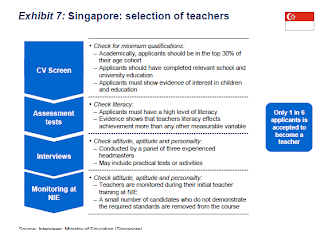Blair talks about the Delivery Unit as one of his successes in his
memoir and gives credit to Sir Machael Barber.
'It was relatively a small organizatiion, staffed by civil servants but also outsiders from McKinsey, Bain and other private sector companies, whose job was to track the delivery of key government priorities. It would focus like a laser on an issue, draw up a plan to resolve it working with the department concerned, and then performance-manage it to a solution. It would get first-class data which it would use for stocktakes that I took personally with the minister, his key staff and mine, every month or so. The unit would present a progress report and any necessary action would be authorised....
We also created the Strategy Unit, to look ahead at the way policy would devlop, the fresh challenges and new ideas to meet them. That also was higly successful. It allowed us to take a medium- and even long-term view of certain issues that were looming but not imminent. Whereas the Policy Unit handled the day-to-day and focused on managing the departments to produce the policies and their implementation that derived from the manifesto or the departmental plans, the Strategy Unit was trying to trying to construct the next policy platform...
In summary, extra money plus system change delivered results...'
Related:
Imported From Britain: Ideas to Improve Schools
“What have all the great school systems of the world got in common?” he said, ticking off four systems that he said deserved to be called great, in Finland, Singapore, South Korea and Alberta, Canada. “Four systems, three continents — what do they have in common?
“They all select their teachers from the top third of their college graduates, whereas the U.S. selects its teachers from the bottom third of graduates. This is one of the big challenges for the U.S. education system: What are you going to do over the next 15 to 20 years to recruit ever better people into teaching?”







